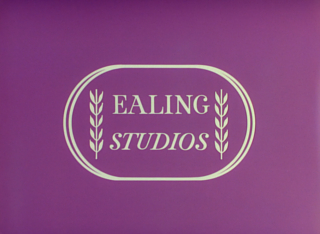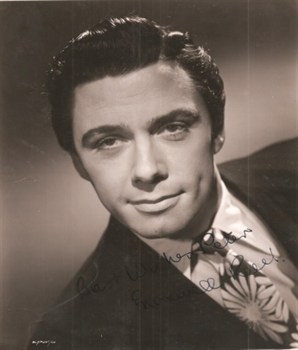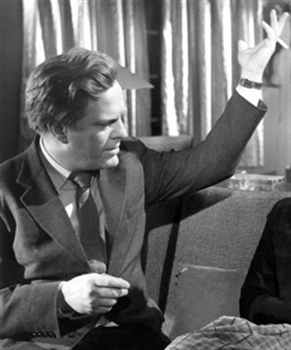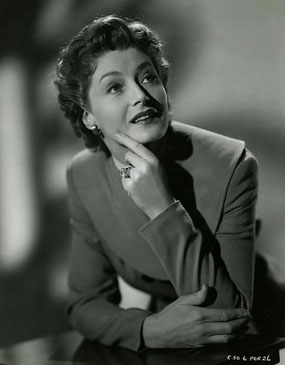
Kind Hearts and Coronets is a 1949 British crime black comedy film directed by Robert Hamer. It features Dennis Price, Joan Greenwood, Valerie Hobson and Alec Guinness; Guinness plays eight characters. The plot is loosely based on the novel Israel Rank: The Autobiography of a Criminal (1907) by Roy Horniman. It concerns Louis D'Ascoyne Mazzini, the son of a woman disowned by her aristocratic family for marrying out of her social class. After her death, Louis decides to take revenge on the family and take the dukedom by murdering the eight people ahead of him in the line of succession to the title.

After the Funeral is a work of detective fiction by Agatha Christie and first published in the US by Dodd, Mead and Company in March 1953 under the title of Funerals are Fatal and in UK by the Collins Crime Club on 18 May of the same year under Christie's original title. The US edition retailed at $2.50 and the UK edition at ten shillings and sixpence (10/6).

The Ealing comedies is an informal name for a series of comedy films produced by the London-based Ealing Studios during a ten-year period from 1947 to 1957. Often considered to reflect Britain's post-war spirit, the most celebrated films in the sequence include Kind Hearts and Coronets (1949), Whisky Galore! (1949), The Lavender Hill Mob (1951), The Man in the White Suit (1951) and The Ladykillers (1955). Hue and Cry (1947) is generally considered to be the earliest of the cycle, and Barnacle Bill (1957) the last, although some sources list Davy (1958) as the final Ealing comedy. Many of the Ealing comedies are ranked among the greatest British films, and they also received international acclaim.

Maxwell Reed was a Northern Irish actor who became a matinee idol in several British films during the 1940s and 1950s.

The Man in the White Suit is a 1951 British satirical science fiction comedy film made by Ealing Studios. It stars Alec Guinness, Joan Greenwood and Cecil Parker and was directed by Alexander Mackendrick. The film was nominated for an Academy Award for Best Writing (Screenplay) for Roger MacDougall, John Dighton and Alexander Mackendrick.

Cecil Parker was an English actor with a distinctively husky voice, who usually played supporting roles, often characters with a supercilious demeanour, in his 91 films made between 1928 and 1969.

Seth Holt was a Palestinian-born British film director, producer and editor. His films are characterized by their tense atmosphere and suspense, as well as their striking visual style. In the 1960s, Movie magazine championed Holt as one of the finest talents working in the British film industry, although his output was notably sparse.
Robert Hamer was a British film director and screenwriter best known for the 1949 black comedy Kind Hearts and Coronets and the now acknowledged 1947 classic It Always Rains on Sunday.

Eric Harold Portman was an English stage and film actor. He is probably best remembered for his roles in three films for Michael Powell and Emeric Pressburger during the 1940s.

Secret People is a 1952 British drama film, directed by Thorold Dickinson and produced by Sidney Cole for Ealing Studios, with a screenplay from Thorold Dickinson, Wolfgang Wilhelm, Joyce Carey and Christianna Brand. Secret People stars Valentina Cortese, Serge Reggiani and Audrey Hepburn and premiered in the U.K. on 8 February 1952. The film provided Audrey Hepburn with her first significant film role, leading to her big breakthrough in Roman Holiday.

Helen Mary Cherry was an English stage, film and television actress. She was born in Worsley, Lancashire, and brought up in Harrogate, West Riding of Yorkshire.

Castle in the Air is a 1952 British comedy film directed by Henry Cass and starring David Tomlinson, Helen Cherry and Margaret Rutherford. It was based on the stage play of the same title by Alan Melville. Produced by ABPC, shooting took place at the company's Elstree Studios.

On the Fiddle is a 1961 British comedy film directed by Cyril Frankel and starring Sean Connery, Alfred Lynch, Cecil Parker, Stanley Holloway, Eric Barker, Mike Sarne, Wilfrid Hyde-White, Kathleen Harrison, Victor Maddern and John Le Mesurier. It was based on the 1961 novel Stop at a Winner by R.F. Delderfield who served in the RAF in World War II.

For Better, for Worse is a 1954 British comedy film in Eastmancolor directed by J. Lee Thompson and starring Dirk Bogarde, Susan Stephen and Cecil Parker. It was based on Arthur Watkyn's play of the same title which had run for over 500 performances in the West End starring Leslie Phillips and Geraldine McEwan. It was released in the United States as Cocktails in the Kitchen.

The Embassy Theatre is a theatre at 64 Eton Avenue, Swiss Cottage, in the London Borough of Camden, England.

Davy is a 1958 British comedy-drama film directed by Michael Relph and starring Harry Secombe, Alexander Knox and Ron Randell. It was the last comedy to be made by Ealing Studios and had the distinction of being the first British film in Technirama. Davy was intended to launch the solo career of Harry Secombe, who was already a popular British radio personality on The Goon Show, but it was only moderately successful.

Lady in Danger is a 1934 British comedy thriller film directed by Tom Walls and starring Walls, Yvonne Arnaud and Anne Grey. The screenplay was by Ben Travers.

The Blind Goddess is a 1948 British courtroom drama film directed by Harold French and starring Eric Portman, Anne Crawford and Hugh Williams. The screenplay concerns a secretary who sets out to expose his boss, Lord Brasted, for embezzlement. It was based on a popular 1947 play of the same title by noted barrister Patrick Hastings.

The Mark of Cain is a 1947 British drama film directed by Brian Desmond Hurst and starring Eric Portman, Sally Gray, Patrick Holt and Dermot Walsh. The film is based on the 1943 novel Airing in a Closed Carriage by Marjorie Bowen, which in turn was based on the true life murder trial of Florence Maybrick. It was made at Denham Studios with sets designed by the art director Alex Vetchinsky.

His Excellency is a 1950 play by the British writers Campbell Christie and Dorothy Christie. A former docker takes over as the British governor of an island colony in the Mediterranean.



















